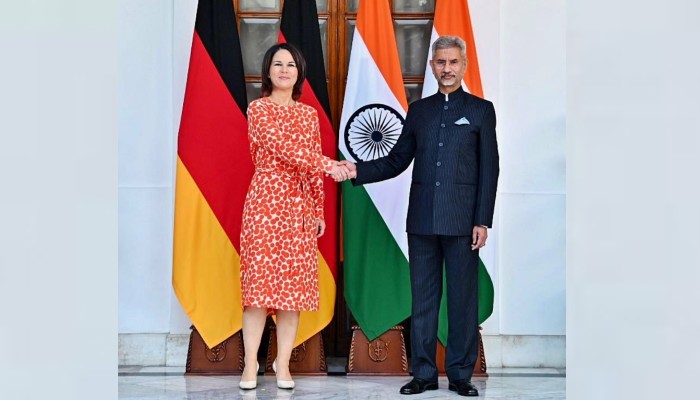Participants reiterated their strong support for a peaceful, stable and secure Afghanistan
During the first India-Central Asia Meeting of National Security Advisers (NSAs) and Secretaries of the National Security Councils (NSCs) on Tuesday, the participants discussed the current situation in Afghanistan and its impact on the security and stability of the region.
They also reiterated their strong support for a peaceful, stable and secure Afghanistan, emphasising respect for its sovereignty, unity and territorial integrity and urging non-interference in its internal affairs, a Joint Communique issued after the meeting said.
The NSAs and Secretaries of the NSCs of India, Kazakhstan, the Kyrgyz Republic, Tajikistan and Uzbekistan participated in the meeting which was held in New Delhi. Turkmenistan was represented by their Ambassador in New Delhi.
The meeting flows from the agreement reached during the first India- Central Asia Summit (27 January 2022) on holding regular meetings of Secretaries of the Security Council to discuss issues of regional security, a Joint Communique said.
Participants at the meeting emphasised that the territory of Afghanistan should not be used for sheltering, training, planning or financing any terrorist acts and reaffirmed the importance of UNSC Resolution 2593 (2021), that no terrorist organisations including those designated by the UNSC Resolution 1267 should be provided sanctuary or allowed to use the territory of Afghanistan.
They noted the current deteriorating humanitarian situation and the need to jointly act to provide humanitarian assistance to the people of Afghanistan.
Participants also condemned in the strongest terms all forms and manifestations of terrorism and underscored the need to work collectively to fight this menace.
They agreed that the expansion of terrorist propaganda, recruitment and fundraising efforts have serious security implications for the region and, therefore, a collective and coordinated response is essential. The misuse of new and emerging technologies, arms and drugs trafficking, using terrorist proxies for cross-border terrorism, abuse of cyber space to spread disinformation and unmanned aerial systems present new challenges in counterterrorism efforts and call for collective action.
They pushed for the UN Comprehensive Convention on International Terrorism to be adopted as soon as possible. They emphasized once more that improved connectivity needed special attention since it might have a multiplicative effect on trade and business as well as deeper ties between India and Central Asian nations.
They also concurred that measures to improve connection should be founded on the values of openness, widespread engagement, respect for local objectives, financial viability, and utmost adherence to national sovereignty and territorial integrity.
They also took note of the increase in trade between India and Central Asian countries through the Shaheed Baheshti Terminal, Chabahar Port and discussed further development of this transport corridor. The participants supported India's proposal to include the Chabahar port within the framework of INSTC.
The Heads of delegations expressed their gratitude to the Indian side for organizing and hosting the meeting, as well as for providing the traditional hospitality and reaffirmed the importance of continuing the meeting.
The participants agreed that the second meeting of the India-Central Asia National Security Advisers/Secretaries of the Security Councils will be held in the Republic of Kazakhstan in 2023.
India and the Central Asian nations are commemorating the 30th anniversary of the start of their diplomatic ties. In all spheres of their interaction—political, commercial, economic, security, and military—India and Central Asian nations are now entangled in complex and mutually beneficial relationships built on friendship, trust, and understanding.
 Contact Us
Contact Us  Subscribe Us
Subscribe Us









 Contact Us
Contact Us
 Subscribe
Subscribe
 News Letter
News Letter

